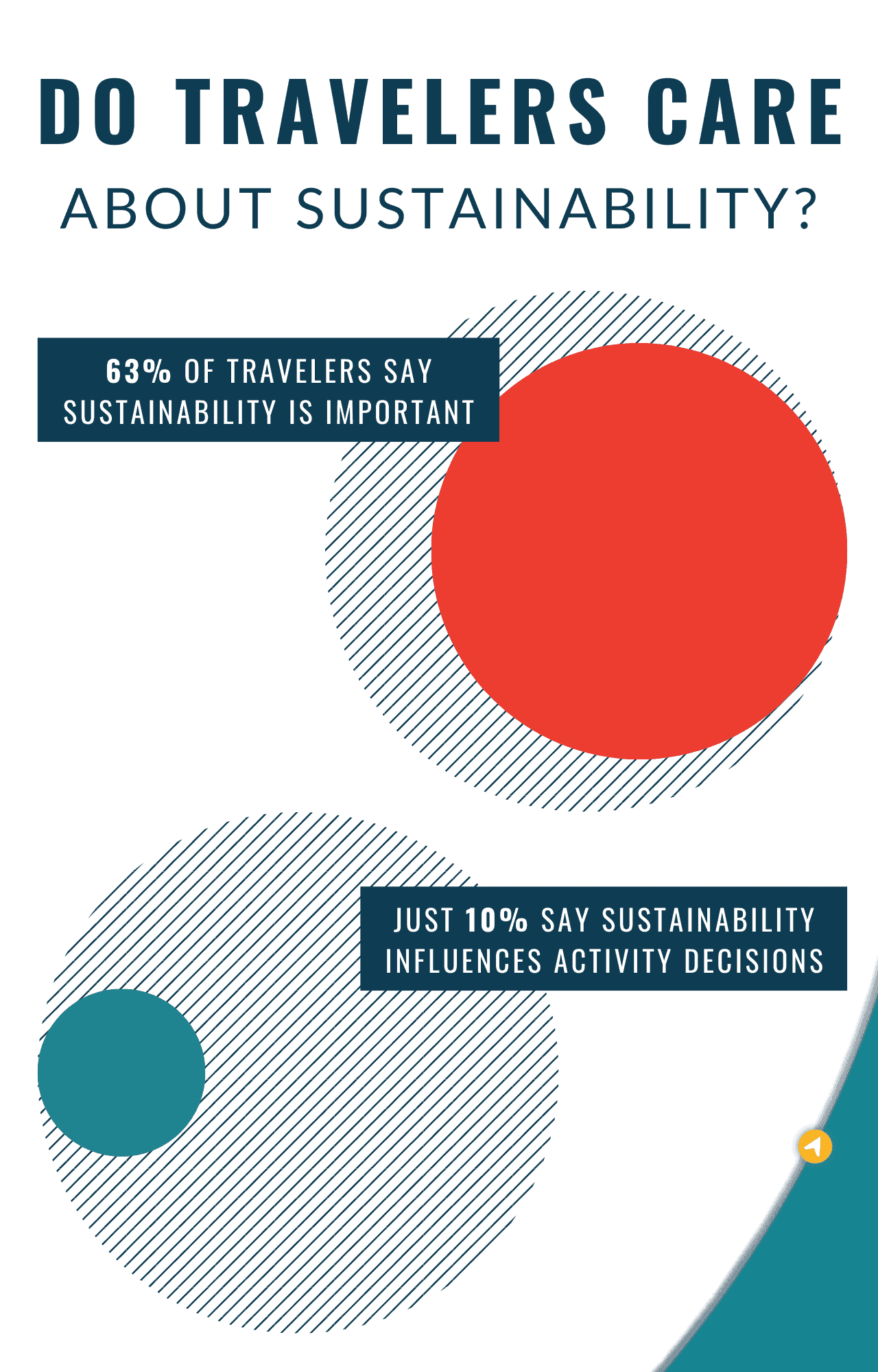Arival explores whether sustainability matters to travelers, and what operators should do about it.
Most people agree that sustainable, less extractive travel is good travel. But does caring about sustainability actually influence purchasing decisions when travelers are about to click “buy”?

This presents a quandary for operators, as sustainable and responsible business practices are often pricier than less sustainable experiences. Many operators would like to think the cost of their environmentally responsible initiatives could be offset by increased bookings, or higher ticket prices.
If sustainability doesn’t directly influence purchasing decisions, should you ditch your environmental efforts?
Not so fast, says Anula Galewska, founder and trainer of Sustainable Tourism Made Easy and responsible business manager for Urban Adventures. She says sustainable tourism ROI deserves a nuanced discussion.
“The problem with sustainability lies in the communication—an average traveler doesn’t know what it means in practice. A role of tour operators is to translate ‘sustainability’ into tangible benefits for the customers and words they would understand,” says Galewska, citing how Urban Adventures, a leader in responsible travel, communicates the local impact each tour can provide a community. This helps demystify the complexity of a sustainable business.
Additionally, while sustainability may not influence purchasing decisions save for a portion of eco-aware travelers, the vast majority of travelers have a great experience on an eco-friendly tour, making it more likely they would be a repeat customer. “People eagerly engage with sustainability-related stories when on a tour. We always get positive reactions when we speak about working with nonprofits, supporting small local entrepreneurs, reducing single use plastic, and more,” says Galewska. “This is what they write about in the reviews and why they come back to us. Many of our loyal customers repeat that they stick with the Intrepid Group because of our purpose and responsible tourism principles.”
The takeaway? Travelers may not care about your sustainable tour when they book an experience. But they sure do care about it when they arrive.
To learn more about traveler trends, discovery and purchasing habits, stay tuned for detailed whitepapers from Arival’s 2019 Consumer Survey, conducted in partnership with U.S. Travel’s National Council of Attractions and Experiences, on arival.travel.

















